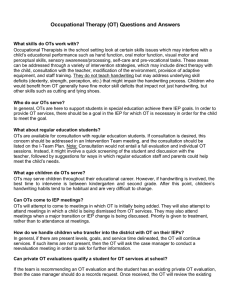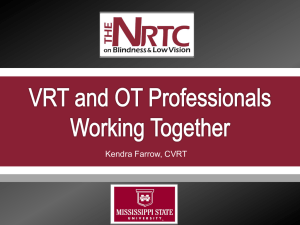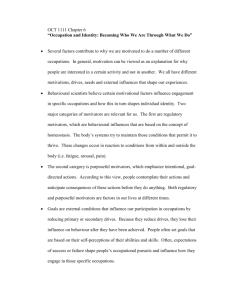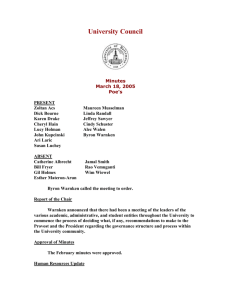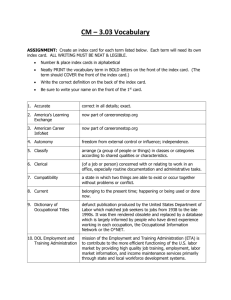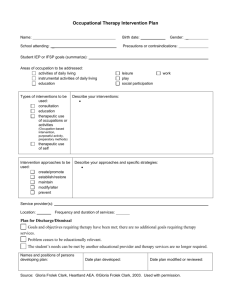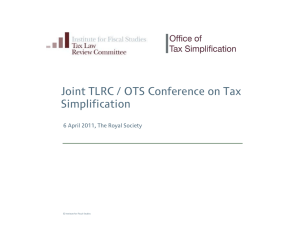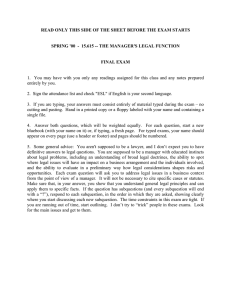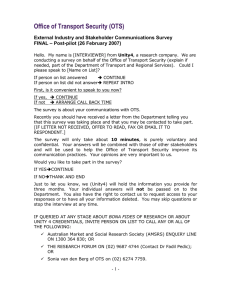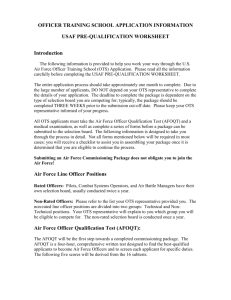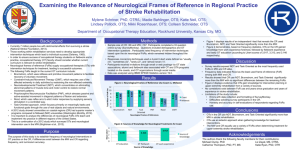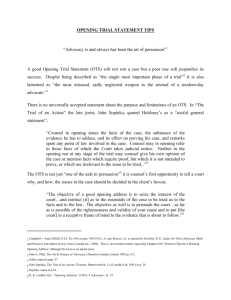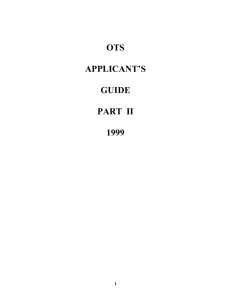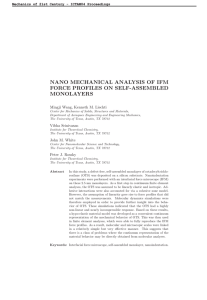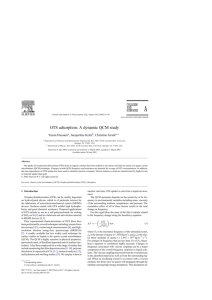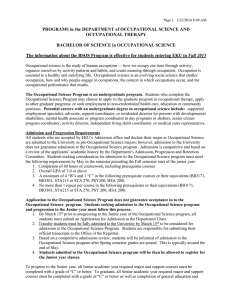Occupational Therapy in Mental Health
advertisement
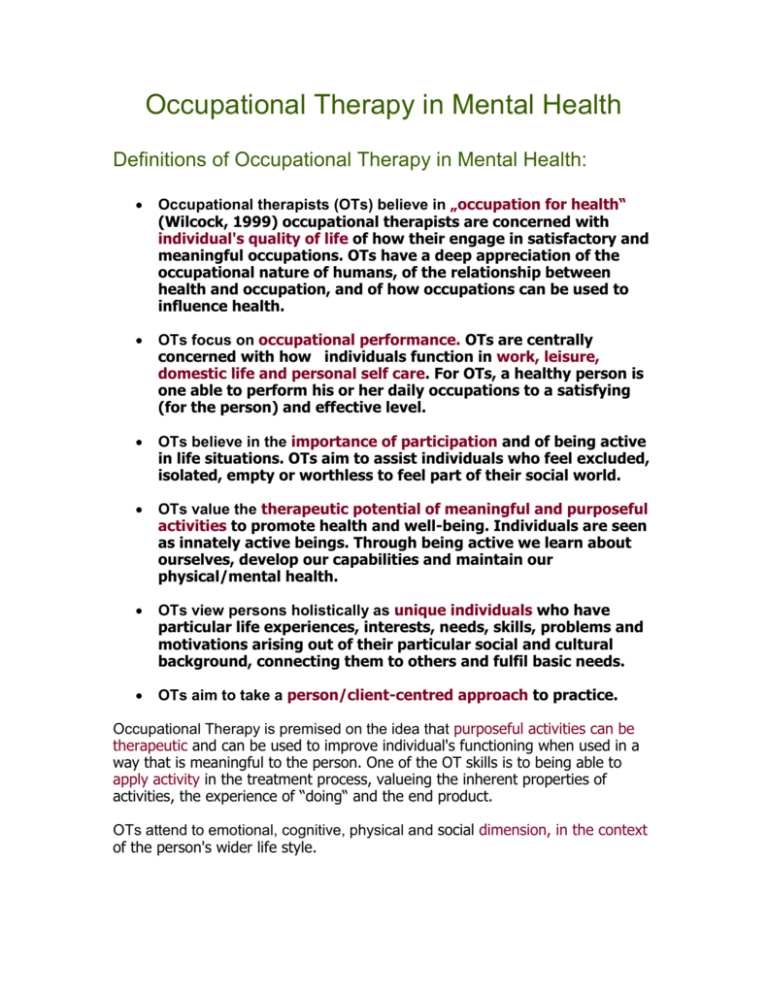
Occupational Therapy in Mental Health Definitions of Occupational Therapy in Mental Health: Occupational therapists (OTs) believe in „occupation for health“ (Wilcock, 1999) occupational therapists are concerned with individual's quality of life of how their engage in satisfactory and meaningful occupations. OTs have a deep appreciation of the occupational nature of humans, of the relationship between health and occupation, and of how occupations can be used to influence health. OTs focus on occupational performance. OTs are centrally concerned with how individuals function in work, leisure, domestic life and personal self care. For OTs, a healthy person is one able to perform his or her daily occupations to a satisfying (for the person) and effective level. OTs believe in the importance of participation and of being active in life situations. OTs aim to assist individuals who feel excluded, isolated, empty or worthless to feel part of their social world. OTs value the therapeutic potential of meaningful and purposeful activities to promote health and well-being. Individuals are seen as innately active beings. Through being active we learn about ourselves, develop our capabilities and maintain our physical/mental health. OTs view persons holistically as unique individuals who have particular life experiences, interests, needs, skills, problems and motivations arising out of their particular social and cultural background, connecting them to others and fulfil basic needs. OTs aim to take a person/client-centred approach to practice. Occupational Therapy is premised on the idea that purposeful activities can be therapeutic and can be used to improve individual's functioning when used in a way that is meaningful to the person. One of the OT skills is to being able to apply activity in the treatment process, valueing the inherent properties of activities, the experience of “doing“ and the end product. OTs attend to emotional, cognitive, physical and social dimension, in the context of the person's wider life style. One key skill used by OTs is the ability to analyse the component parts of an activity in order to use it purposefully, meaningfully and therapeutically. Occupational balance is a key concept in the occupational therapy practice. Often misunderstood as the balance between work, play and rest, it is, in fact, a much more complex and holistic concept related to balance in life style and tasks. Balance is about the relationship between a person, their occupations and their worlds. It means being able to engage in a diverse range of meaningful and purposeful occupations in order to meet our needs. Reference: Finlay, L. (2004). The Practice of Psychosocial Occupational Therapy. Cheltenham: Nelson Thornes.
